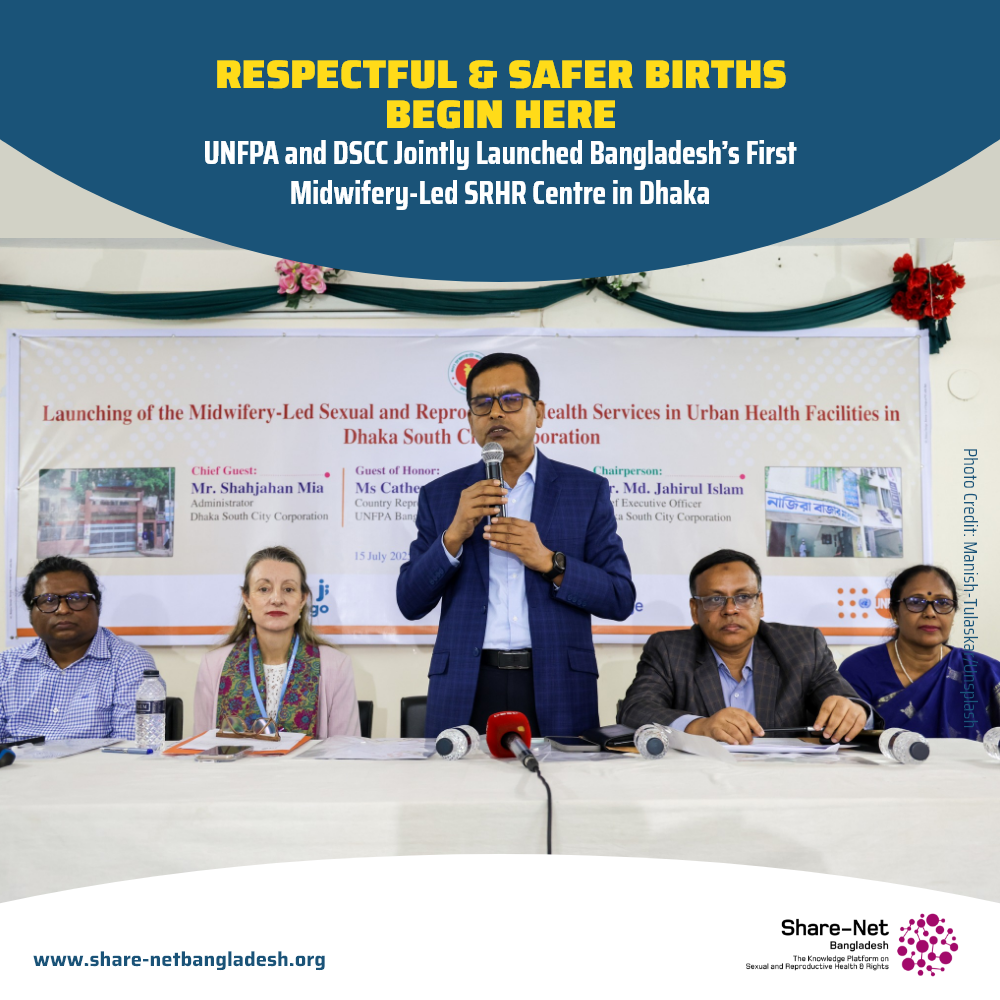Respectful, Safer Births Begin Here: UNFPA and DSCC Jointly Launched Bangladesh’s First Midwifery-Led SRHR Centre in Dhaka
In a significant step forward for maternal and reproductive health, UNFPA, in partnership with Dhaka South City Corporation (DSCC), inaugurated the first midwifery-led Sexual and Reproductive Health (SRHR) Centre at Dhaka Mohanagar General Hospital. The initiative marks a vital shift in Bangladesh’s maternal healthcare model—placing skilled midwives at the center of respectful, woman-centred care.
Supported by Sida and implemented by Jhpiego Bangladesh, the centre is more than just a facility; it’s a bold response to longstanding concerns over rising caesarean section (C-section) rates, maternal mortality, and lack of access to quality reproductive services in urban areas.
According to Bangladesh Health Facility Survey 2022, over 37% of births nationwide are now delivered via C-section—well above the WHO-recommended 10–15%. In private urban hospitals, the rate exceeds 70%. This medicalisation of childbirth often leads to unnecessary interventions, increased health risks, and financial burdens—particularly for low-income women.
Midwives, however, offer a grounded alternative. With focused training in antenatal care, safe delivery, postpartum support, and family planning, they can ensure that more women experience normal births without unnecessary procedures.
At the launch, the UNFPA Representative met with newly deployed midwives and toured the facility, which is stocked with life-saving maternal and newborn supplies. The representative also interacted with the first mother to deliver at the centre, offering words of encouragement around exclusive breastfeeding and neonatal nutrition—a timely gesture, as the baby was born underweight.
“This isn’t just a centre—it’s a commitment to dignity, choice, and care,” a health leader present at the event remarked. “Midwives don’t just deliver babies—they deliver rights.”
Bangladesh’s SRHR challenges are layered. While the country has made progress in reducing maternal mortality, the maternal mortality ratio still stands at 123 per 100,000 live births (Sample Vital Registration System, 2023). Urban poor women face gaps in antenatal care, respectful delivery options, and postpartum support. Midwifery-led care—especially within public hospitals—addresses these gaps by offering evidence-based services closer to where women live and work.
The new SRHR centre is also strategically aligned with Bangladesh’s National Strategy for Midwifery 2023–2030, which aims to strengthen midwifery services in both rural and urban settings. It embodies what health experts have long argued: Empowering midwives empowers women.
Backed by Sweden’s development cooperation arm, the Embassy of Sweden in Dhaka, this initiative reflects the power of international-local partnerships in transforming healthcare systems from within.
Source: UNFPA Bangladesh

